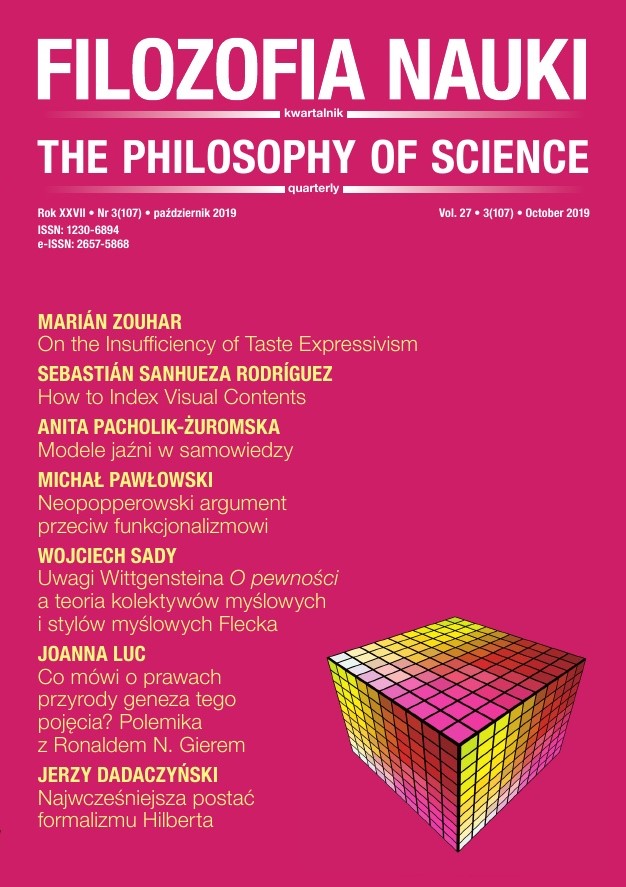Uwagi Wittgensteina "O pewności" a teoria kolektywów myślowych i stylów myślowych Flecka
Wittgenstein’s On Certainty and Fleck’s Theory of Thought Collectives and Thought Styles
Author(s): Wojciech SadySubject(s): Philosophy, Epistemology, History of ideas, Philosophy of Science
Published by: Uniwersytet Warszawski - Wydział Filozofii i Socjologii, Instytut Filozofii
Keywords: Ludwig Wittgenstein; Ludwik Fleck; epistemology; forms of life; thought collectives; thought styles; pictures of the world; certainty
Summary/Abstract: In his Philosophical Investigations, Wittgenstein declares that he is neither creating a theory nor explaining anything: he is merely describing the ways of using words and sentences, thus trying to make philosophical problems disappear. In fact, however, he proposes a theory of the nature of language games and their functions, even though — because of the above declaration — he expresses it in a fragmentary and unclear way. After 1946, his views underwent significant transformations: he abandoned the philosophy of mathematics for the philosophy of psychology. And in the last months of his life, in the notes published posthumously as On Certainty, he expressed a number of epistemological claims that explain our cognitive attitudes. He did not manage to finish this work. We have to do it for him, and crucial supplements are provided — as this paper argues — by Ludwik Fleck’s theory of thought collectives and thought styles.
Journal: Filozofia Nauki
- Issue Year: 27/2019
- Issue No: 3 (107)
- Page Range: 87-102
- Page Count: 16
- Language: Polish

